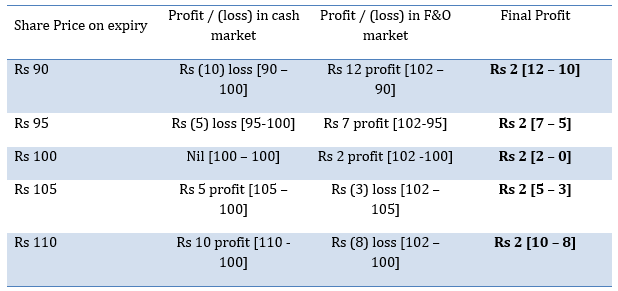The role of your MFD in handholding you through your investments

At the beginning of your mutual funds investment journey, you will most likely be confused and sceptical about how to start investing, and which funds to choose etc. A proper understanding of your financial goals and your appetite for risk will help you to choose the best funds that will align with your requirements.
How does risk profiling help to plan for investments?
Your risk profile is an indication of how much risk you are ready to take. Usually at the beginning of your investment journey, you may want to steer clear of risks as the focus is on earning some returns from your investments. The returns will give the motivation to continue your investments for more focused goals that you would assign for yourself in your financial journey.
How to start your investments?
Investments into mutual funds are one of the easiest and most convenient options for its features which makes them ideal for new and experienced investors alike.
At the beginning of your investment journey, you may start with investing into Arbitrage Funds. These funds can give you higher returns than savings bank accounts without the risk associated with investment into equity. Furthermore, an Arbitrage fund is much more tax efficient than traditional savings products. Let us understand Arbitrage fund and how they work:
What are Arbitrage Funds?
Arbitrage funds are equity-oriented funds which can be best categorized as hybrid funds. Arbitrage funds leverage their profits through arbitrage opportunities in the market. This means that the funds try to make profits through price differences of stocks in different markets. For example, let us say the cost of PQR stock is Rs 100 per share in the cash market and Rs 102 in the futures market. The fund manager of the Arbitrage fund simultaneously buys 100 shares of the PQR stock from the cash or spot market and sells 100 shares in the futures market thereby locking the gains right away. Whether the price of the share goes up or down the investor will make a profit of Rs (102 – 100) X 100= 200 less the transaction charges for the trade. This profit is risk-free because it is not affected by the movement in share price. Arbitrage by definition is risk-free profits. The table below shows how arbitrage works.

The returns from holding the Arbitrage fund are treated as short term capital gains (STGC) if held for less than 12 months and are taxed at 15%. Returns from holding the funds for more than a year are called long term capital gains (LTCG) taxed at 10% for gains exceeding Rs 1 lakh per year. The taxation of arbitrage funds is much more efficient than savings bank interest or FD interest, which are taxed according to your income tax slab rate.
Once you become comfortable with low-risk investments in mutual funds like Arbitrage funds, you can gradually start investing with a focused goal in mind like child education, child marriage, or retirement planning. In fact, you can start investing in solutions oriented or goal based mutual funds.
Read more about Arbitrage funds Arbitrage funds: A tax efficient option for parking your short term funds
What is goal based mutual funds?
Some mutual funds are curated to help you plan your investments with a focus on the goals for which you are accumulating wealth. The top contenders in this category are the children funds and the retirement funds.
Children’s funds are customized mutual fund solutions to accumulate funds for the higher studies of your children along with boarding, relocation etc. Children’s funds could also be used to fund your child’s marriage or for any other expense you may need to incur when your children grow up.
Retirement mutual funds invest in a mix of debt and equity securities. In fact you can start off with a higher equity ratio in your Retirement mutual fund and as you build a corpus you can increase the debt investments as a security for the funds so accumulated. Although you can choose a regular mutual fund for building up the corpus you require for your retirement, a solutions oriented mutual fund like retirement fund takes the burden off from investment planning for your retirement.
You must also read – Planning for your future with you: SBI Mitra SIP
How can a mutual fund distributor handhold investor?
A mutual fund distributor will be able to help you through the process by suggesting to you a tailor-made portfolio to suit your risk profile and financial goals. The mutual fund distributor can play an important role by handholding you through your investment journey, starting with low-risk products like Arbitrage funds, which can allay your concerns of losing your hard-earned savings. Once you feel a bit more confident about mutual funds and understand the benefits, solutions-oriented funds which provide investment solutions for important life-stage goals like children’s education, retirement planning etc. can be your next step in this journey. Since these goals are personal goals with which you may have an emotional connection, it will be easier for you to relate to these goals and start saving / investing for these goals through solutions-oriented funds.
Tax planning is an important need for many above a certain taxable income level. Equity linked savings schemes can lead to higher wealth creation over long investment horizons for taxpayers compared to other 80C investment options. As you gradually understand the benefits of mutual funds compared to traditional investments, you will find it easy to switch to ELSS for your tax planning needs with the help of your mutual fund distributor. Over a period as you gain more experience, your mutual fund distributor can gradually initiate you into hybrid / balanced funds or diversified equity funds for different investment needs.
Mutual Fund Investments are subject to market risk, read all scheme related documents carefully.
RECOMMENDED READS
- Demystifying debt mutual funds
- Why Balanced Funds may be the best investments for new mutual fund investors
- How do you know if you have good funds in your mutual funds portfolio: part 1
- Know your mutual fund tax obligations to manage your investments effectively
- Asset Allocation is much more important than fund selection
LATEST ARTICLES
- SBI Dynamic Asset Allocation Active FOF: A smart asset allocation solution in shifting markets
- Your perfect Gift for your little ones this Childrens Day: SBI Magnum Childrens Benefit Fund Investment Plan One of the best performing funds for your childs future
- Magnum Hybrid Long Short Fund: A smart investment option in challenging conditions
- Delivering Returns with Resilience: SBI Multicap Funds proven multicap strategy
- SBI Equity Hybrid Fund: One of the top performing hybrid funds in current market conditions
Quick Links
Follow SBI MF
More About SBI MF
POST A QUERY





